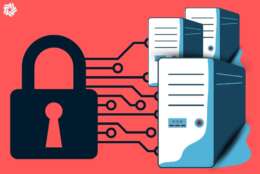Cybersecurity
-
Dr. Matthew McFadden, vice president for cyber at GDIT, explains how artificial intelligence and machine learning can dynamically analyze behaviors across the network, identify unusual activity that poses a risk, and automatically take action to contain threats.
June 13, 2022 -
Raj Iyer, the Army’s chief information officer, said the Army’s IT and cybersecurity budget request is $16.6 billion in 2023, which is the largest of all DoD services.
June 13, 2022 -
With zero trust, the network itself can actually tell you, via IP addresses, how many users you have and what applications they’re using. That information can be collected passively, and it’s where agencies need to start to best secure their networks, because insider threat should be their primary concern.
June 13, 2022 -
In today's Federal Newscast, the Biden administration outlines its plan to maximize COVID-era IT modernization funds, and a study shows the brain injury CTE is rare in military personnel.
June 13, 2022 -
Because of the development of quantum computers, keeping our information, financial details and personal secrets protected is at risk today.
June 10, 2022 -
The Defense Department is still figuring out how to raise the cybersecurity waterline among its vendor community as part of its Cybersecurity Maturity Model Certification program. And some new research based on privately collected cyber risk intelligence shows the problem is as urgent as ever.
June 09, 2022 -
In today's Federal Newscast, news on a potential multimillion dollar settlement for victims of the Office of Personnel Management hack.
June 09, 2022 -
The four-month partnership will allow cybersecurity experts to bring new perspectives to CISA while embedded in teams across the agency.
June 08, 2022 -
The big fear in the data encryption community is the advent of quantum computing, i.e. computers are so powerful they can crack any algorithm.
June 07, 2022 -
An influential commission says one of Chris Inglis's first big tasks could be taking on the shortage of cyber talent.
June 03, 2022 -
The General Services Administration wants to ensure government-wide contracts have cybersecurity requirements baked in from the start.
June 01, 2022 -
The Navy recently held a hackathon to bring in ideas on how to make cybersecurity run like multiplayer games.
June 01, 2022 -
A lot of vendors think the CMMC requirements are pretty onerous. Congress asked DoD to prove the Pentagon is meeting the same cybersecurity standards it's demanding from contractors.
June 01, 2022 -
For hackers, internet-connected medical devices have become an attractive target more vulnerabilities that stay unpatched compared to computers.
May 31, 2022 -
The State Department's new Bureau of Cyberspace and Digital Policy started up just about eight weeks ago.
May 31, 2022












